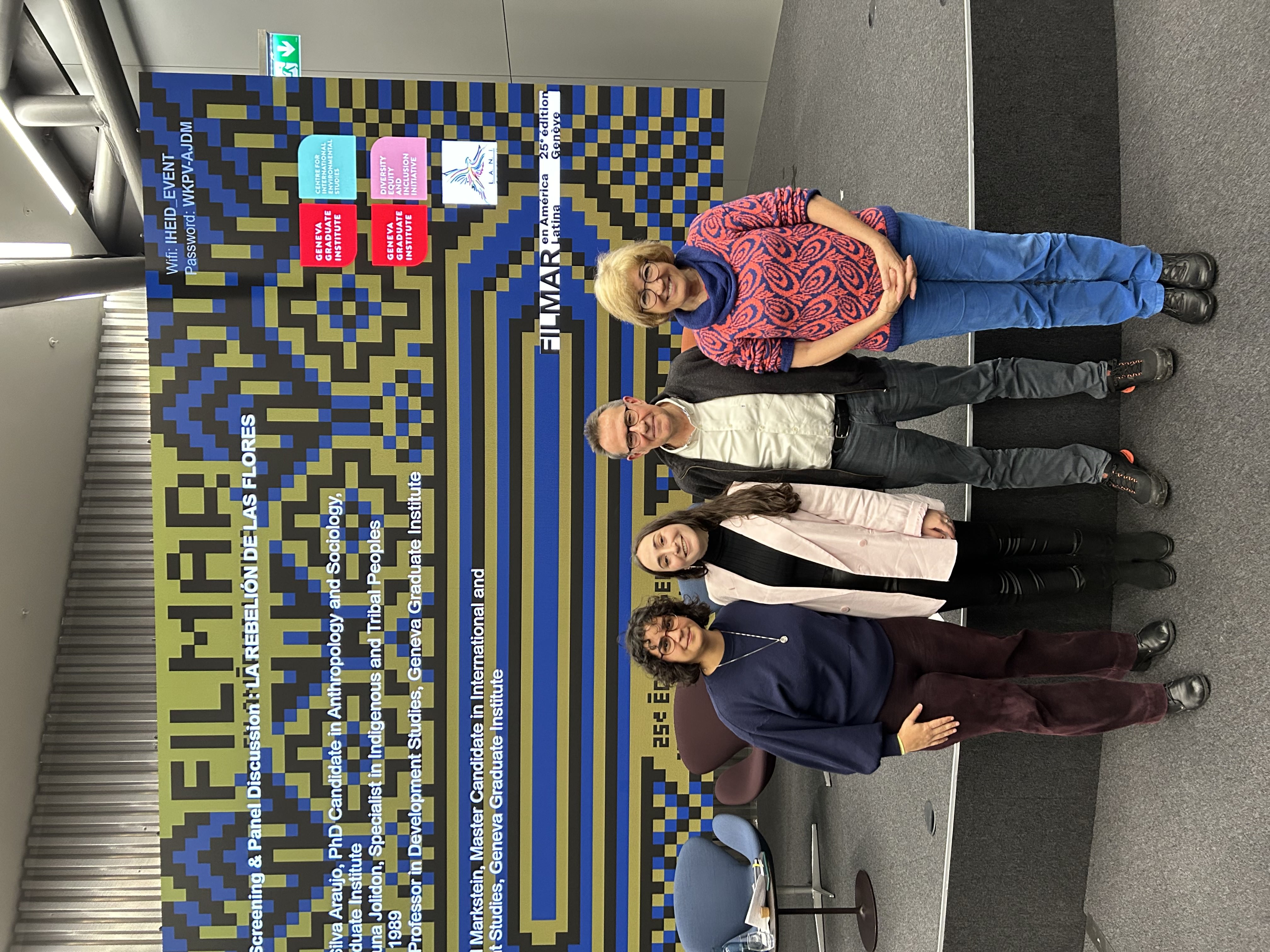On 20 November 2023, the Geneva Graduate Institute hosted a screening of the documentary film La Rebelión de las Flores, followed by a panel discussion. The event was attended by a large audience from both the Institute and the Genevan public, with strong participation in English, French and Spanish.
La Rebelión de las Flores is a documentary about a group of women from different indigenous peoples who organise themselves, in defence of their lands against terricide, and decide to travel to Buenos Aires to meet with a Minister.
Their method is novel: 1) they organise themselves in a horizontal way, this is seen when they are told to meet with a Minister, and they are told that only the leaders should go and they refuse, and they manage to get one woman for each indigenous community , besides which there is no hierarchy, none of them dictates the strategy, they decide it together; 2) they represent their villages outside the traditional patriarchal structures (caciques); 3) the relations among them are of care and not of demand of heroism or guilt. An ethic of care for the land and for human beings is constantly evident.
In Buenos Aires, the authorities and the city ignore them, but they have the support of feminists and intellectuals such as Rita Segato, as well as the mothers of Plaza de Mayo in the person of Nora Cortiñas. In Argentina the different categories in struggle (unions, women, indigenous people, etc) are in solidarity with each other, in this particular case, with the struggle of women.
The primary issues affecting all indigenous peoples today are the delimitation and regularisation of their lands, the exploitation of natural resources and the recognition of their identity. The present is difficult: the extraction of lithium (in the north of the country) pollutes the water and for almost six months, the indigenous peoples of Jujuy have been mobilising and being repressed for demonstrating against its extraction.
The future is bleak: the future president has said that "it doesn't matter if a river is polluted, there is plenty of water"; he also presented a bill in 2022 to repeal the law preventing evictions and regularising the lands.
Finally, the recognition of the identity of the women depicted in La Rebelión de las Flores is essential for them to enjoy rights over land and natural resources. To circumvent the recognition of these rights, the legislature of the Province of Mendoza declared that the Mapuche are not native peoples of the province. Difficult times are approaching.
Finally, the Global North needs a lot of lithium to reduce carbon emissions (electric cars) and the governments that have lithium reserves only see the inflow of dollars that it represents. However, for the indigenous and peasant peoples of northern Argentina, this implies the contamination of the little water that they do have. These are zones of sacrifice. They are not only defending their lands, but they are also defending the land for all of us, so that we can all survive in a world that does not have unlimited resources and in which, no solutions are contemplated for the whole of humanity. We should support them and not only dialogue about them, but with them.



